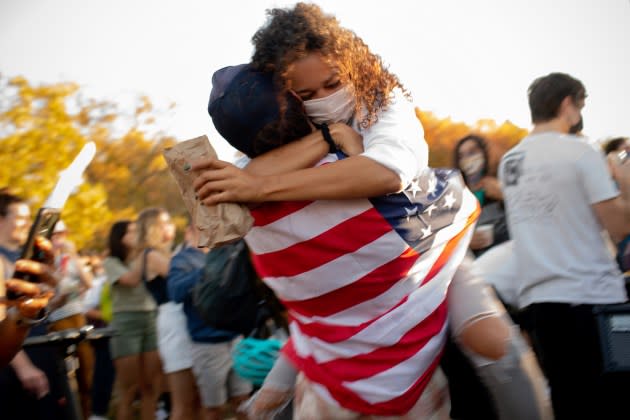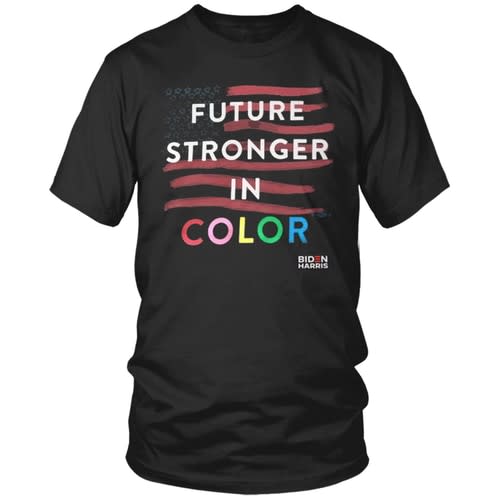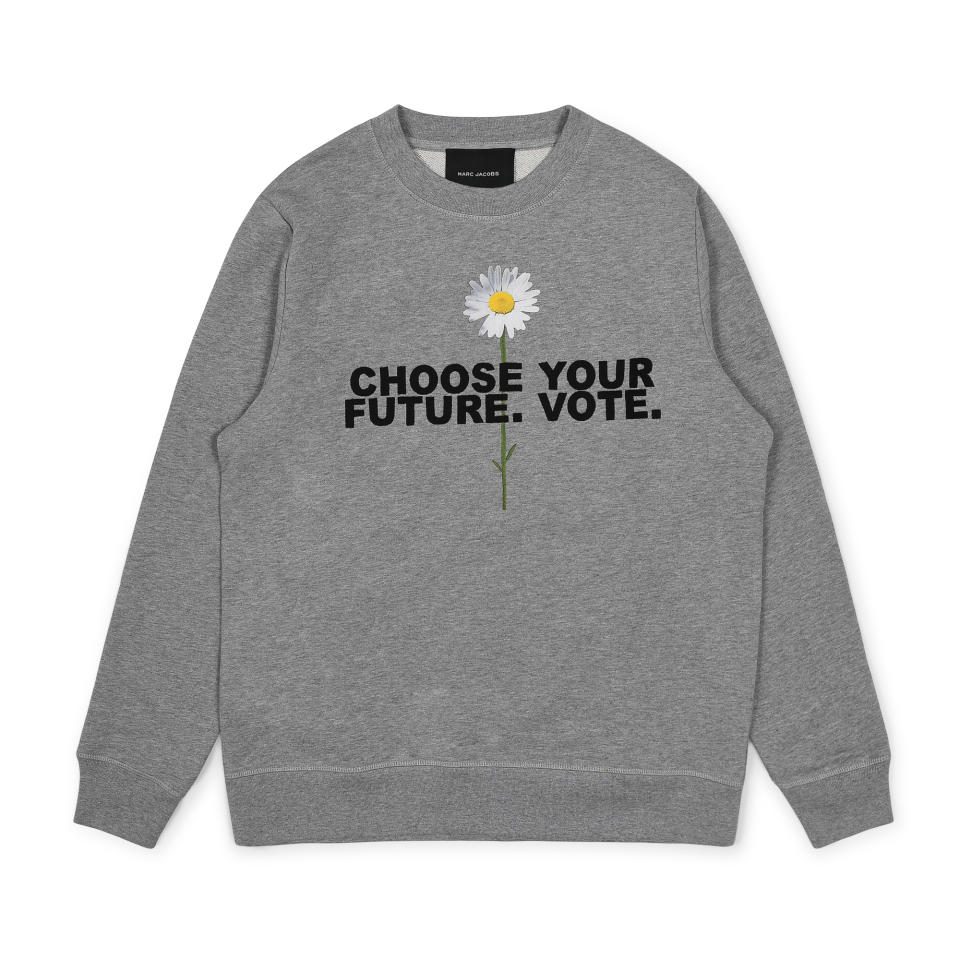Most Americans Believe Political Merch Impacts Election Results, Survey Reveals

Political merchandise can be a powerful tool, according to new research from EverythingBranded, the global merchandise hub that provides physical marketing solutions.
The company’s survey of 1,000 U.S. adult consumers highlights the sentiment that Americans share when it comes to investing in political merchandise. More than a third of respondents (36 percent) said they have or are planning to buy election merchandise this season and of those 68 percent believe it will impact the results of the election.
More from WWD
TikTok, Captiv8 Expands Partnership With Social Commerce Integration
What's Really Behind the Fast Fashion Versus Luxury Purchase Divide?
“People choose to wear branded merch for all types of reasons,” said Rob Mobsby, director of digital at EverythingBranded. “They like the organization and the design, but they also want to show they belong to a team. Whether it’s a favorite sports team or a political party, these products have always been a powerful way of showing support.”
Of the respondents who have already purchased political merchandise this season, 77 percent said they are proud to wear their political merchandise and 70 percent said their purchase was made in hopes of influencing others to support the same candidate. Notably, 75 percent of respondents said they view the purchase of political merchandise as a donation and 68 percent said that they believe it will impact the results of the election.
While political merchandise is ultimately a timely purchase, a majority of consumers (72 percent) said that they plan to hold on to the items after the election regardless of the results. Sixty-six percent of respondents said they are likely to keep their items for at least five to 10 years after the election.

Notably, campaign merchandise has had a standing place within the fashion industry.
In 2016, a collection from select designers, including Marc Jacobs, Tory Burch and Public School championed Hilary Clinton’s campaign with apparel that appealed to consumers from a design and cause perspective. The designs were meant to not only mark the election but a bold new chapter in America’s history. Other official campaign merchandise was also seen from American Apparel which aimed at spotlighting diversity. Donald Trump also tapped American Apparel for its campaign merchandise in the same election year.
In the 2020 election, designers once again took part in encouraging their consumers to vote. While some brands took on initiatives with partnerships with Rock the Vote, I Am Voter and When We All Vote, a group of 19 American designers also joined forces to support President Joe Biden. The participating designers included Prabal Gurung, Gabriela Hearst, Vera Wang and Jason Wu, among others.

Looking ahead at the 2024 election, data from EverythingBranded’s report indicates that clothing will have the highest demand (55 percent) with T-shirts, sweatshirts and jackets leading the way. Hats and other headwear follow in demand at 43 percent. On average consumers said they will spend about $26 for a single candidate this election.
Examining sentiments across the political spectrum, EverythingBranded’s report found that Republicans and Democrats are just as likely to buy branded political merchandise in support of a candidate, however, while Democrats favor clothing purchases, Republicans are more likely to purchase a hat or yard sign. Notably, Democrats said they are willing to spend about $14 more than Republicans for these purchases.
A small discrepancy was also seen across genders. While 42 percent of men said they plan to purchase candidate swag only 31 percent of women said the same. Men are also willing to spend an average of $14 more on these purchases.
Best of WWD

 Yahoo News
Yahoo News 
